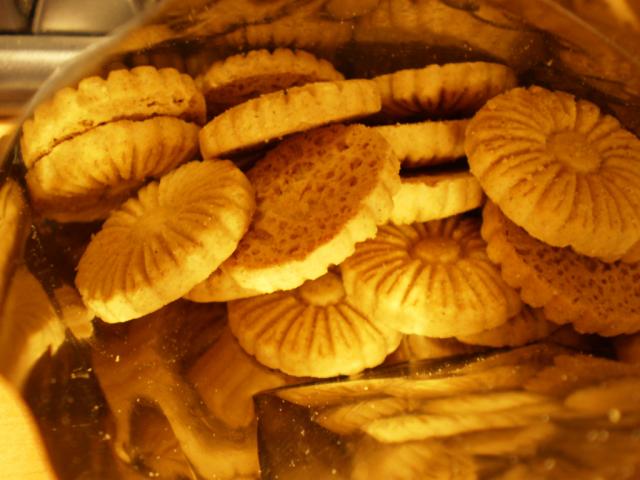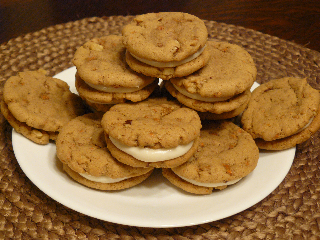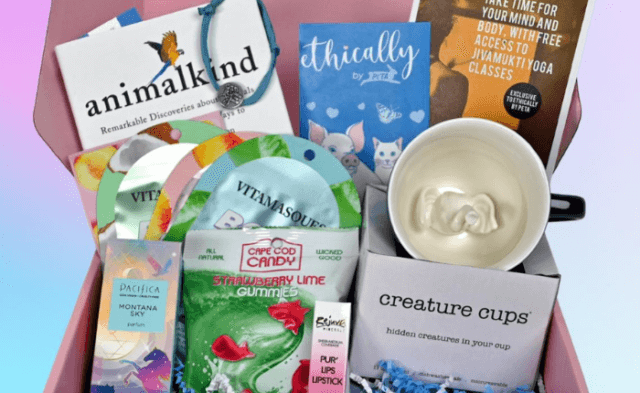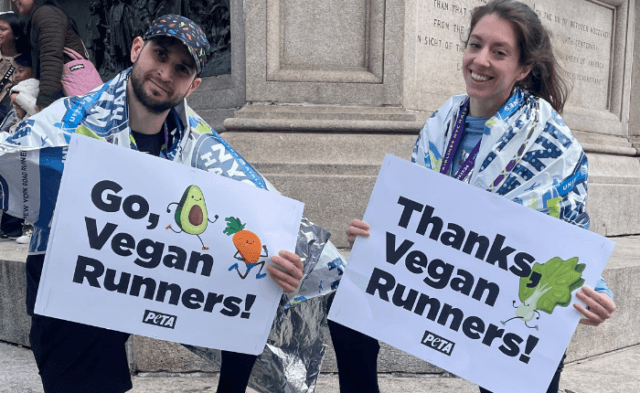Of all the foods associated with the holiday season, cookies may be the most ubiquitous—and the best-loved.
They’re easy to make and fun to eat and instantly put everyone in a better mood. What’s a holiday office potluck or party for friends without plates piled high with rugelach and spiced snickerdoodles?
But what if all those batches of sugar cookies and gingerbread folk could do more than bring holiday revelers brief moments of cheer? What if they could help promote peace on Earth?

Don’t believe it? It’s true. You really can help foster an atmosphere of goodwill to all—by swapping out the eggs and butter in traditional recipes and using vegan ingredients in their place. In the process, you’ll also be giving your guests some food for thought.
As vegan television star Christina Pirello, from the PBS show Christina Cooks, says, “Cookies are the most benign, noncontroversial way to start conversations” about what we eat. “When presented with a chocolate chip cookie, most people will not turn up their nose, even if told it’s vegan. And if a ‘healthful’ cookie turns out to be yummy, the door is open for discussion.”
And there’s a lot to discuss when it comes to delicious vegan cookies and other baked goods. Not only do they contain none of the animal fat or cholesterol found in eggs and dairy products, they also spare animals enormous suffering on factory farms.

Virtually all hens used by the egg industry spend their entire lives in cages so cramped that they can’t even spread a single wing. They never get to breathe fresh air, feel the warmth of the sun on their backs or engage in any natural behavior.
Cows on dairy farms are typically forced to stand all day on hard concrete or in manure-laden dirt. And since they produce milk only to nourish their calves, farmers keep them pregnant or lactating from the moment they become sexually mature by artificially inseminating them.
The male offspring of chickens and cows are useless to the egg and dairy industries. Male chicks are discarded shortly after birth—often by being thrown into high-speed grinders while they’re still alive. Calves are often torn away from their loving mothers within a day or two, causing both extreme distress. Mother cows are known to call out for their lost calves for days afterward. The male calves are sold to the veal industry, which keeps them confined to tiny crates, while females are sentenced to the same sad fate as their mothers.
If all that’s a little too heavy for holiday party conversation, just mention that when you use vegan options instead of raw eggs in recipes, you can sneak a bite (or three) of cookie dough without fear of salmonella poisoning.
Vegan baking substitutions are as easy as they are compassionate.
For instance, instead of cow’s milk, just use an equal amount of soy or almond milk. If a recipe calls for buttermilk, add a little apple cider vinegar to your nondairy milk. One tablespoonful of ground flax seeds mixed with 3 tablespoonfuls of water is a tried-and-true egg replacement. Look online for other vegan baking tips. These simple substitutions won’t change the taste of your holiday favorites, and no one will know they’re vegan—unless you tell them.
But remember, everything in moderation—including vegan chocolate candy cane cookies. If you do overindulge in jam-filled thumbprint cookies and macaroons, there is some good news: Eating vegan can also be your best ally in the battle of the bulge come the new year.





